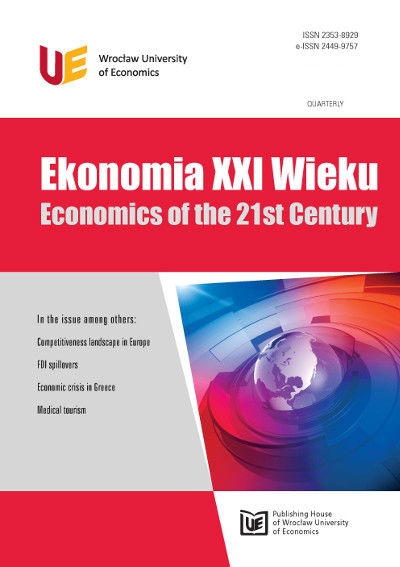Phantom stock plan as a variable component of compensation policy in the Polish banking sector
Akcje fantomowe jako element polityki zmiennych składników wynagrodzenia w polskim sektorze bankowym
Author(s): Agata WieczorekSubject(s): Economy
Published by: Wydawnictwo Uniwersytetu Ekonomicznego we Wrocławiu
Keywords: phantom stocks; remuneration policy; banking sector; corporate governance; variable remuneration
Summary/Abstract: The ineffective executive compensation policy and excessive risk taking by managers in companies in the banking sector have been considered the main source of the outbreak of the recent financial crisis. These conclusions have led to new regulations which encourage companies to make executive remuneration dependent on the performance of the company in the long term, through the deferred portion of the salary. For this purpose a number of different financial instruments can be used, such as stocks, options and restricted stock, or increasingly used phantom stock plan. Phantom stock is a kind of compensation scheme which entitles its holder to receive a cash payment at a designated time in the future. Thanks to the fact that the amount of payment is linked mostly to the share price, the company can be confident that the actions of top executives will be aimed at achieving good performance over a long period of time. Moreover, this type of remuneration, compared to shares or stock options, does not necessitate the increase of the share capital since employees do not receive actual shares. Owing to these advantages phantom stock plans may become one of the basic elements of variable remuneration. This paper examines whether the Polish public banks use phantom stock plans to remunerate managers and to what extent the banks listed on the Warsaw Stock Exchange use phantom stock plans and what information about them they reveal. The analysis showed little interest in phantom stock plans which can be explained by the fact that the Polish public banks only since 2012 have been required to pay managers also through deferred variable remuneration. Some banks may be only in the process of introducing such plans, and therefore decided not to disclose details. For example Alior Bank, ING and PKO BP, have only mentioned this instrument of remuneration in their reports. In addition, ten banks had other long-term incentive plans which could discourage them from using this form of remuneration. Phantom stock plans as part of the variable remuneration of top executives in the Polish banking sector can be considered a new idea, taking into account the fact that the first information about their use appeared only in 2012. For this reason, it is not yet as popular as stock options. However, it can be assumed that this type of remuneration will gain in importance in the future which will improve the quality of bank disclosures.
Journal: Ekonomia XXI Wieku
- Issue Year: 2015
- Issue No: 07
- Page Range: 130-144
- Page Count: 15

